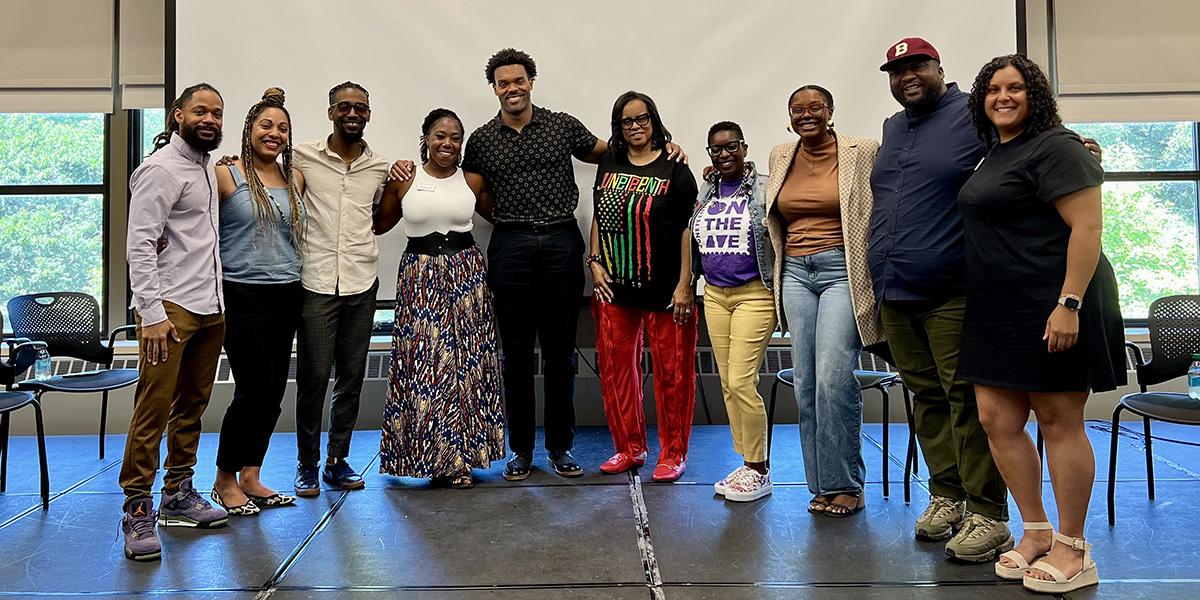The role of advocacy and activism in art, the future of Black art in Columbus, and how institutions can best collaborate with communities took the spotlight during a discussion that was the centerpiece of the Hale Black Cultural Center's 4th annual Juneteenth Celebration Thursday.
The Hale Center's celebration of the nation's newest federal holiday--which marks the date in 1865 slaves in Texas learned they had been freed by the Emancipation Proclamation--gathered a half dozen artists and art educators with ties to The Ohio State University, the Maroon Arts Group, and the Urban Arts Space for the public forum.
Panelist Marshall Shorts, an artist and co-founder of the Maroon Arts Group, a Black artist collective in the Bronzeville neighborhood on Columbus' Near East Side, said Juneteenth can be a vehicle for learning as well as assessing the state of Black America. "It's not just to get a day off, it's a time to do some cultural recall and look at the conditions we're in," he said before a packed house in the MLK Lounge at Hale Hall. "We can use Juneteenth as a symbolic learning opportunity because so many people don't even know what it is."
As the panel discussed the intrinsic qualities of Black art, panelist Arris Cohen, a visual artist and former ODI Young Scholar who is finishing his undergraduate degree, described the scrutiny he feels to stick to outsider narratives about what his art should depict. "Since I've been doing art professionally, I have a fear of trying to explain what goes on in my mind or in my life," he said. "I do feel that pressure all the time."
With an art show upcoming at the sedate Faculty Club, Cohen said walls are coming tumbling down for Black artists in Columbus. "Twenty years ago, you would have not seen a Black man with a show at the Faculty Club," he said. "It's not easy, but it's being made easier by people like the panelists on this stage right now."
Panelist Monica Stigler, an education policy expert who serves as the program manager for the African American and African Studies Community Extension Center on the Near East Side, acknowledged that Ohio State has work to do to overcome a reputation as a gentrifier and displacer on the East Side.
"You really need to work to regain the trust of the community," she said. "A good amount of goodwill has come for me by just being transparent. Authentic communication begins with relationships."
As the panel wrapped up, an audience member asked about what they saw as the future of Black art in Columbus. Panelist Sheri Neale, a Maroon Arts Group co-founder, said she thinks the recent purchase of a permanent space by her collective in Bronzeville will be crucial. "Just having a place that is mainly a cultural hub for Black artists is going to be very important," she said.
Opening the program was Dr. Summer Luckey, the interim director of the Hale Center, who said the center remains committed to a future that "uplifts Black folks and our rich cultural heritage."
